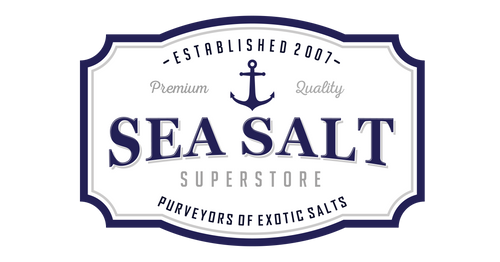When it comes to making brine, the type of salt you use can dramatically affect both the flavor and the texture of your food. Brining, whether for meats, vegetables, or pickles, involves dissolving salt in water to create a solution that enhances moisture retention and infuses flavors. However, not all salts are ideal for brining—choosing the right salt is crucial to achieving the perfect brine.
1. Kosher Salt
Kosher salt is perhaps the most popular choice for making brine, and for good reason. It has large, flaky crystals that dissolve easily in water, making it perfect for dissolving into a brine solution. The larger crystals also ensure that the brine is not overly salty, which is important when you’re trying to avoid making your food too salty. Kosher salt’s clean, mild taste makes it a great all-purpose choice, and its ability to draw moisture from foods while adding flavor is why it’s often used by chefs for brining meats like turkey or chicken.
When using kosher salt in brine, remember that the flakiness of the crystals means you may need more volume of kosher salt than other finer salts. As a general rule, use about 1.5 times the amount of kosher salt compared to table salt in a recipe.
2. Sea Salt
Sea salt, harvested from evaporated seawater, is another excellent option for brining. It typically has a more complex mineral profile compared to regular table salt, offering subtle differences in flavor that can enhance the overall brining process. Sea salt comes in a variety of textures, from fine to coarse, allowing you to choose a variety that works best for your brining needs.
The best sea salts for brining are those with medium to coarse grain sizes, which dissolve easily without over-salting. Fleur de sel, a delicate and slightly moist French sea salt, is particularly prized for its ability to bring out the natural flavors of the food being brined. However, because it is more expensive and delicate, fleur de sel is typically used for finishing dishes rather than in large quantities for brining.
3. Canning and Pickling Salt
If you’re specifically brining for pickling, canning and pickling salt is your best bet. This salt is finely ground, which ensures it dissolves quickly in water without leaving any cloudy residue. Canning and pickling salt also doesn’t contain any additives, such as anti-caking agents or iodine, which can cloud the brine or alter the flavor of your food.
The fine grain of canning salt is ideal for making precise brines, especially when you need a uniform concentration of salt. It’s particularly effective for preserving vegetables, fruits, and pickles, as it creates a stable environment for long-term storage and fermentation.
4. Himalayan Pink Salt
Himalayan pink salt, known for its distinctive pink hue and mineral richness, is becoming increasingly popular for various culinary applications, including brining. Though not as commonly used as kosher or sea salt, it is a good choice for those seeking a salt with a unique flavor profile and an additional layer of minerals.
While its coarser texture can make it harder to dissolve than finer salts, many people enjoy using it in brines for its added trace minerals, which can give the brine a subtly different taste. Be mindful of the fact that Himalayan salt can be more intense in flavor, so use it sparingly in brines.
5. Table Salt
Though not typically recommended for brining due to its fine texture and additives (like iodine and anti-caking agents), table salt can still work in a pinch. It dissolves easily, but the high concentration of iodine can sometimes impart an off taste to your brine, and its smaller grains can cause over-salting if not measured properly. If you must use table salt, make sure to adjust the quantity based on its finer grain size.
Final Thoughts
The best salt for making brine largely depends on your specific needs and preferences. Kosher salt remains a versatile and popular choice, but if you’re looking for a unique flavor profile or specific use (like pickling), other salts like sea salt or canning salt may be ideal. Each type of salt has its own characteristics, so experiment to find the one that best suits your brining needs. The right salt can elevate your brine, resulting in perfectly seasoned, flavorful food every time.




